-

The Glass Castle
Amazon.com Jeannette Walls's father always called her "Mountain Goat" and there's perhaps no more apt nickname for a girl who navigated a sheer and towering cliff of childhood both daily and stoically. In The Glass Castle, Walls chronicles her upbringing at the hands of eccentric, nomadic parents--Rose Mary, her frustrated-artist mother, and Rex, her brilliant, alcoholic father. To call the elder Walls's childrearing style laissez faire would be putting it mildly. As Rose Mary and Rex, motivated by whims and paranoia, uprooted their kids time and again, the youngsters (Walls, her brother and two sisters) were left largely to their own devices. But while Rex and Rose Mary firmly believed children learned best from their own mistakes, they themselves never seemed to do so, repeating the same disastrous patterns that eventually landed them on the streets. Walls describes in fascinating detail what it was to be a child in this family, from the embarrassing (wearing shoes held together with safety pins; using markers to color her skin in an effort to camouflage holes in her pants) to the horrific (being told, after a creepy uncle pleasured himself in close proximity, that sexual assault is a crime of perception; and being pimped by her father at a bar). Though Walls has well earned the right to complain, at no point does she play the victim. In fact, Walls' removed, nonjudgmental stance is initially startling, since many of the circumstances she describes could be categorized as abusive (and unquestioningly neglectful). But on the contrary, Walls respects her parents' knack for making hardships feel like adventures, and her love for them--despite their overwhelming self-absorption--resonates from cover to cover. --Brangien Davis --This text refers to the Hardcover edition. -
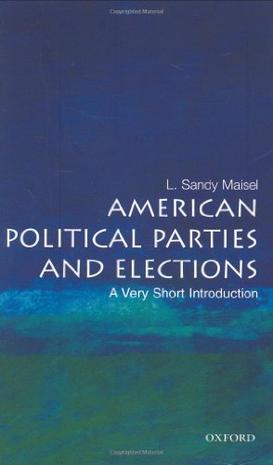
American Political Parties and Elections
Few Americans and even fewer citizens of other nations understand the electoral process in the United States. Still fewer understand the role played by political parties in the electoral process or the ironies within the system. Participation in elections in the United States is much lower than in the vast majority of mature democracies. Perhaps this is because of the lack of competition in a country where only two parties have a true chance of winning, despite the fact that a large number of citizens claim allegiance to neither and think badly of both. Or perhaps it is because in the U.S. campaign contributions disproportionately favor incumbents in most legislative elections, or that largely unregulated groups such as the now notorious 527s have as much impact on the outcome of a campaign as do the parties or the candidates' campaign organizations. Studying these factors, you begin to get a very clear picture indeed of the problems that underlay our much trumpeted electoral system. This Very Short Introduction introduces the reader to these issues and more, providing an insider's view of how the system actually works while shining a light on some of its flaws. As we enter what is sure to be yet another highly contested election year, it is more important than ever that Americans take the time to learn the system that puts so many in power. -
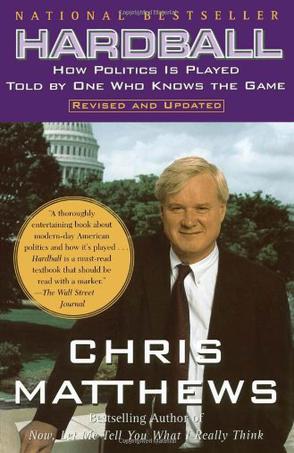
Hardball
How politics is played by one who knows the game... Chris Matthews has spent a quarter century on the playing field of American politics -- from righthand man of Speaker of the House Tip O'Neill to host of NBC's highest rated cable talk show Hardball. In this revised and updated edition of his political classic, he offers fascinating new stories of raw ambition, brutal rivalry, and exquisite seduction and reveals the inside rules that govern the game of power. -
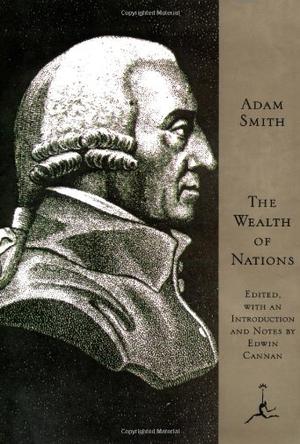
The Wealth of Nations
Adam Smith’s masterpiece, first published in 1776, is the foundation of modern economic thought and remains the single most important account of the rise of, and the principles behind, modern capitalism. Written in clear and incisive prose, The Wealth of Nations articulates the concepts indispensable to an understanding of contemporary society; and Robert Reich’s Introduction both clarifies Smith’s analyses and illuminates his overall relevance to the world in which we live. As Reich writes, “Smith’s mind ranged over issues as fresh and topical today as they were in the late eighteenth century—jobs, wages, politics, government, trade, education, business, and ethics.” -
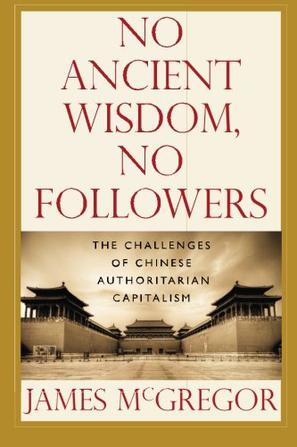
NO ANCIENT WISDOM, NO FOLLOWERS
In the past three decades, China has risen from near collapse to a powerhouse -- upending nearly every convention on the world stage, whether policy or business. China is now the globe’s second largest economy, second largest exporter, a manufacturing machine that has lifted 500 million of its citizens from poverty while producing more than one million US dollar millionaires. Then why do China’s leaders describe the nation’s economic model as “unstable and unsustainable”? Because it is. James McGregor has spent 25 years in China as a businessman, journalist and author. In this, his latest highly readable book, he offers extensive new research that pulls back the curtain on China’s economic power. He describes the much-vaunted “China Model” as one of authoritarian capitalism, a unique system that, in its own way, is terminating itself. It is proving incompatible with global trade and business governance. It is threatening multinationals, which fear losing their business secrets and technology to China’s mammoth state-owned enterprises. It is fielding those SOEs – China’s “national champions” -- into a global order angered by heavily subsidized state capitalism. And it is relying on an outdated investment and export model that’s running out of steam. What has worked in the past, won’t work in the future. The China Model must be radically overhauled if the country hopes to continue its march toward prosperity. The nation must consume more of what it makes. It must learn to innovate. It must unleash private enterprise. And the Communist Party bosses? They must cede their pervasive and smothering hold on economic power to foster the growth, and thus social stability, that they can’t survive without. Government must step back, the state-owned economy must be brought to heel, and opportunity must be freed. During the Tang Dynasty, an official in the imperial court observed: “No ancient wisdom, no followers.” He was lamenting that regime was headed alone into dangerous and uncharted waters without any precedent for guidance. Again today – as McGregor makes clear – this is China’s greatest challenge. -
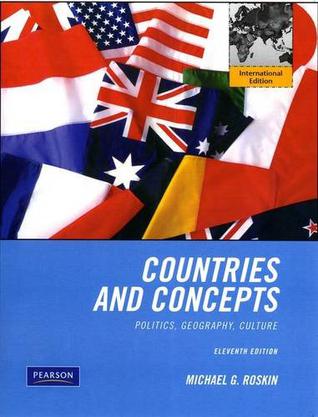
Countries And Concepts
Systematically examining politics from around the world, Countries and Concepts presents ten accessible and in-depth studies of Britain, France, Germany, Russia, Japan, China, India, Mexico, Nigeria, and Iran. This text looks at similarities and differences in five key areas of each country to facilitate comparative analysis, defining important concepts and integrating examples from current events throughout. Highly readable and thought-provoking, Countries and Concepts introduces students to the politics and governments of the world and bolsters their civic education by considering the historical, political, economic, geographical, and moral aspects of democracy. MyLab或是Mastering系列是在线作业系统。Access Code Card是在线作业系统的访问码,是老师和学生课堂之外网络互动及交流的平台,个人是无法使用这个平台的。请读者注意您购买的这个ISBN是不带Access Code Card的。